11 Small Grocery Habits That Instantly Reveal A Person Is Financially Smart
Even small and intentional choices can make a big difference.
 Andriiii | Shutterstock
Andriiii | Shutterstock Considering groceries are one of the basic necessities most people struggle to budget for every month amid rising costs and inflationary pressures, it's not surprising that frugal and financially smart people put a lot of effort into crafting better money saving habits. Of course, to save money on groceries and make cheaper trips to the grocery store, you have to be intentional and mindful of your financial values. What kinds of things are you willing to give up? How much time can you spend crafting new habits? What's important to prioritize?
When you have a good idea of those values, like many truly frugal people do, there are a number of small habits you can implement in regular grocery visits to save money and make this basic ritual more effective. Many of the small grocery habits that instantly reveal a person is financially smart are easy to implement, but only with the right mindset, goals, and strategy.
Here are 11 small grocery habits that instantly reveal a person is financially smart
1. They shop with a list
 Drazen Zigic | Shutterstock
Drazen Zigic | Shutterstock
While it's possible to follow a budget without a grocery list, many financially smart people find it much easier and effective to make a detailed list before they enter the chaotic environment that is a grocery store.
Whether it's planning out meals, keeping track of specific ingredients, or tracking prices and deals before they head into the store, having a list makes navigating even the busiest stores more approachable. And it makes it much easier to avoid buying unnecessary items.
2. They eat before they shop
 ViDI Studio | Shutterstock
ViDI Studio | Shutterstock
Eating before they go into a grocery store — where the options are endless and the advertising reigns far more enticing on an empty stomach — financially smart people protect themselves from overspending and making impulsive purchases.
According to a Dole Food Company survey conducted by OnePoll, more than 75% of grocery shoppers admit to "blowing their budget" when they shop on an empty stomach, struggling with making intentional decisions and following a list when they shop hungry.
Even if that means planning ahead by keeping snacks in their car or prepping meals to grab on the way out the door, eating before food shopping is one of the small grocery habits that instantly reveal a person is financially smart.
3. They never shop on a daily basis
 Zamrznuti tonovi | Shutterstock
Zamrznuti tonovi | Shutterstock
Rather than shopping for every meal or on a daily basis, financially smart, frugal people instead make a plan to shop on a larger scale. Whether it's every other week or once a month, they plan out their meals and the food they need to make for one or two trips to the grocery store.
Not only can they buy more items in bulk — which generally tend to be cheaper per unit than smaller packages and single items — they plan out how they're going to budget for other things, like rent or large bills, with their grocery spending in mind.
4. They use coupons
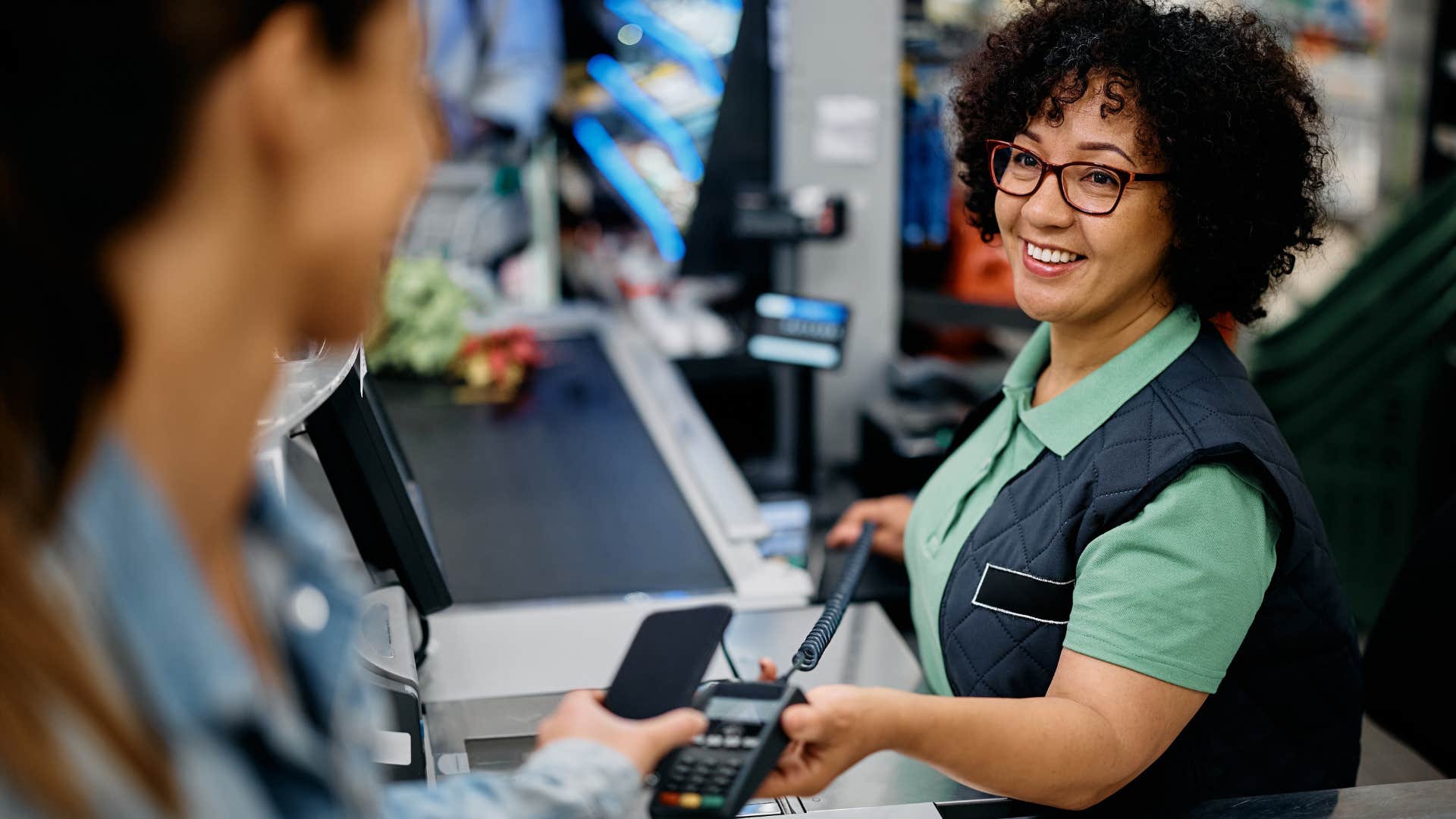 Drazen Zigic | Shutterstock
Drazen Zigic | Shutterstock
By leveraging seasonal options, sourcing coupons online and in-person, and waiting for deals to make larger purchases, financially smart people save tons of money in the long run at the grocery store. Even if that means investing in loyalty programs and store cards to maximize their savings, they're willing to invest extra time and effort into applying and paying bills on different platforms.
According to psychologist Dr. Ramani Durvasula, a lot of the overspending habits and impulsive purchases that shoppers fall victim to are prompted by advertising that preys on emotional turmoil. When you enter a grocery store hungry, stressed out, or unprepared, you're more likely to buy something that's "on sale," even if you don't need it.
So in addition to sourcing deals and coupons, financially smart shoppers also utilize planned lists, so they're not spending on things just for the thrill of saving a few bucks on things they don't actually need.
5. They only buy seasonal produce
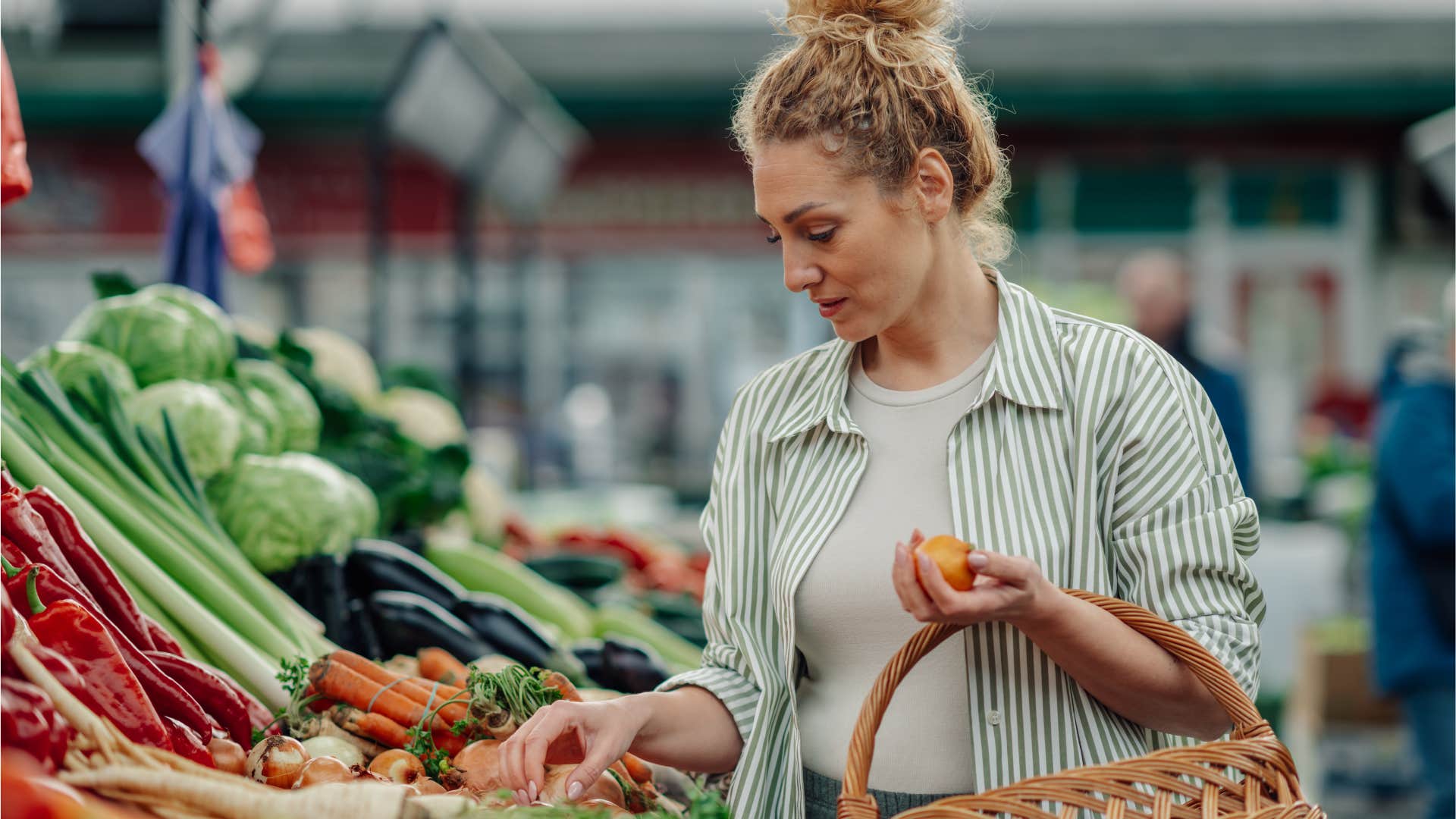 Zamrznuti tonovi | Shutterstock
Zamrznuti tonovi | Shutterstock
Rather than crafting lists and planning meals around produce that's out of season and consistently overpriced in grocery stores, financially smart people focus on only buying fruits and vegetables when they're in season.
Like experts from the Mayo Clinic suggest, seasonal produce isn't just better quality and more nutrient dense, it's also much cheaper than buying produce when it's grown and sold outside of its peak season window. So, financially smart people aren't just saving money by making this intentional switch, they're also bolstering their physical health and well-being.
6. They don't pay extra for convenience
 voronaman | Shutterstock
voronaman | Shutterstock
Financially smart people don't pay extra for convenience — whether it's pre-packaged foods, pre-cut vegetables, or even food delivery at an extra cost. By intentionally planning and organizing their grocery trips, they avoid being pressured into paying extra for convenience, saving them money in the long run that other people are subtly wasting away.
Especially in our culture of instant gratification and comfort, it's not surprising that many people are falling for convenience schemes and advertising, especially in places like the grocery store that are historically stressful, crowded, and overstimulating.
7. They plan meals around their pantry
 voronaman | Shutterstock
voronaman | Shutterstock
Planning meals around their leftovers and pantry items is one of the small grocery habits that instantly reveal a person is financially smart. By cleaning out their pantries and refrigerators and crafting meals and lists out of the things that they haven't already used, they not only save money from buying things they don't need, they reduce food waste.
Even if they simply cook a pantry meal before they decide to go shopping, they stretch the food they have before spending on groceries that they don't need.
8. They use reusable grocery bags
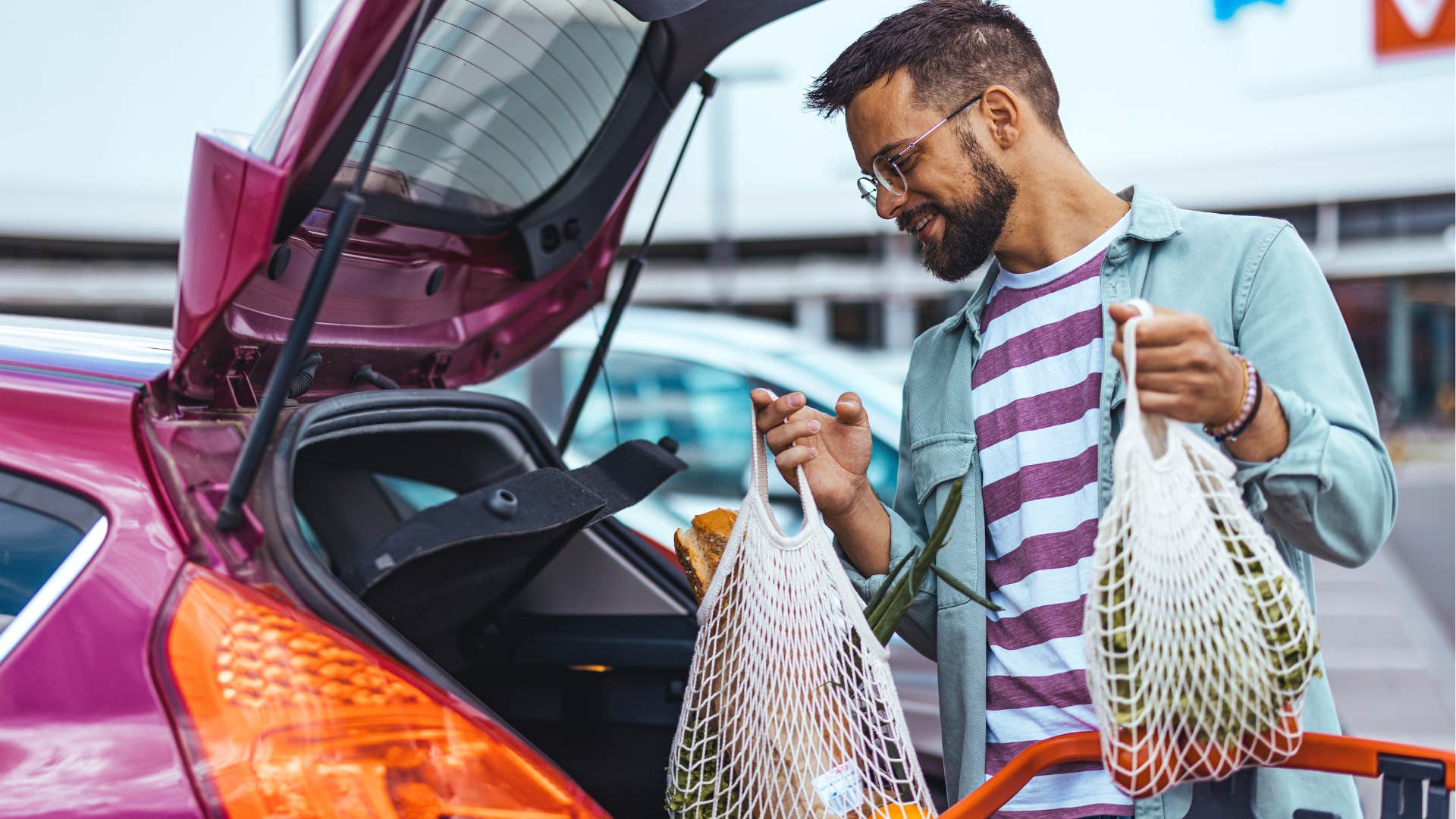 Dragana Gordic | Shutterstock
Dragana Gordic | Shutterstock
Using reusable grocery bags and avoiding extra fees associated with plastic alternatives in many cities is one of the small grocery habits that instantly reveal a person is financially smart. It's not only a cost-effective alternative to single-use bags, it's also environmentally conscious and sustainable, something many frugal people are intentional about cultivating in their daily lives.
According to a study from Frontiers in Psychology, frugal people also tend to be inherently sustainable and eco-friendly as a result of their anti-consumerist habits. They follow many principles of ethical consumption, whether they realize it or not, by limiting their spending and the material goods they acquire.
9. They pay with cash
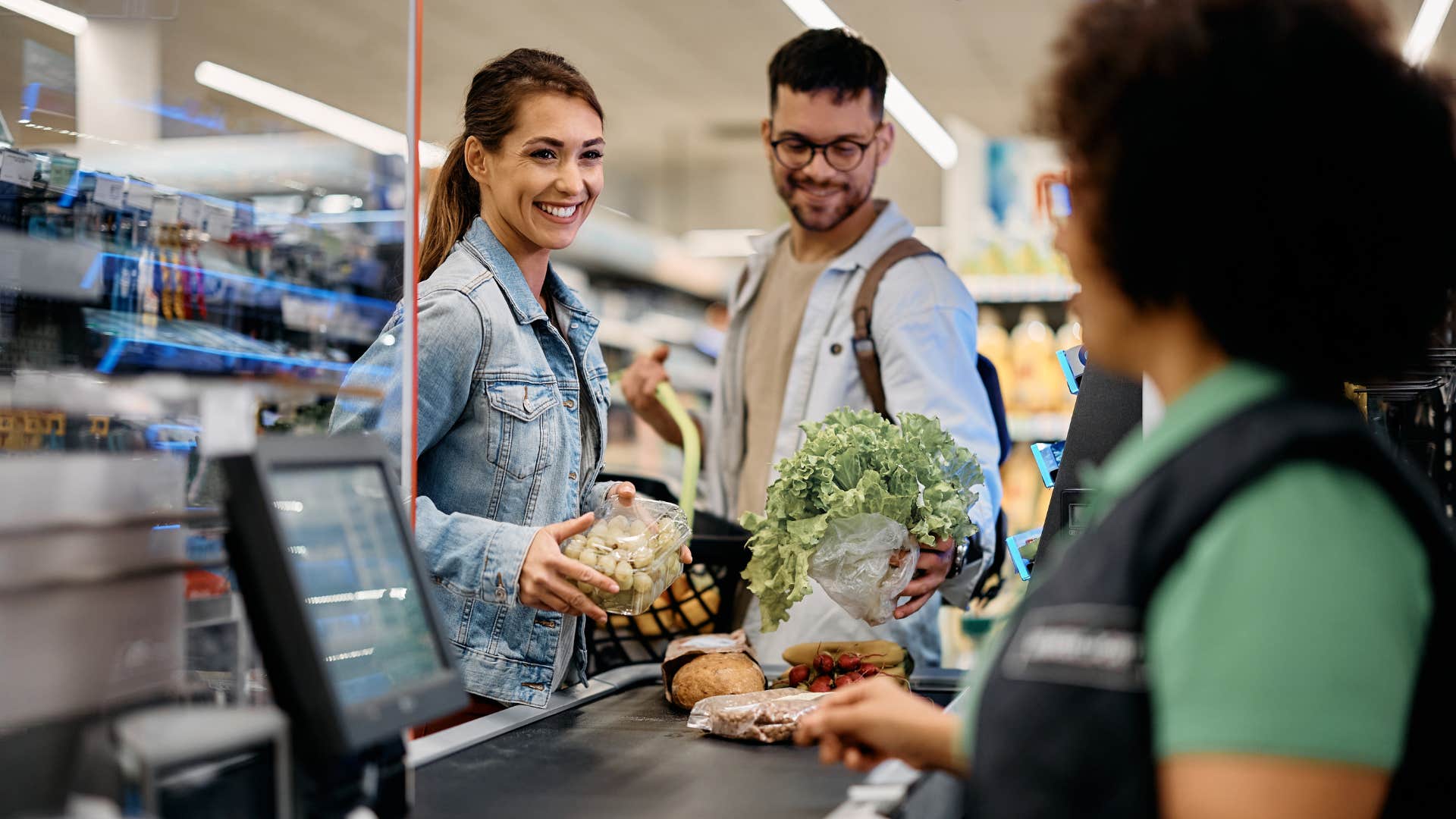 Drazen Zigic | Shutterstock
Drazen Zigic | Shutterstock
Paying with cash is one of the small grocery habits that instantly reveal a person is financially smart, as it often helps them to follow a budget without falling victim to using a card, making impulse purchases, or unknowingly going over their set budget.
By only bringing cash, they're forced to be intentional with what they put in their cart, using a calculator or other device to tally up and track the money they're spending as they move through the store.
10. They choose generic over store-brand foods
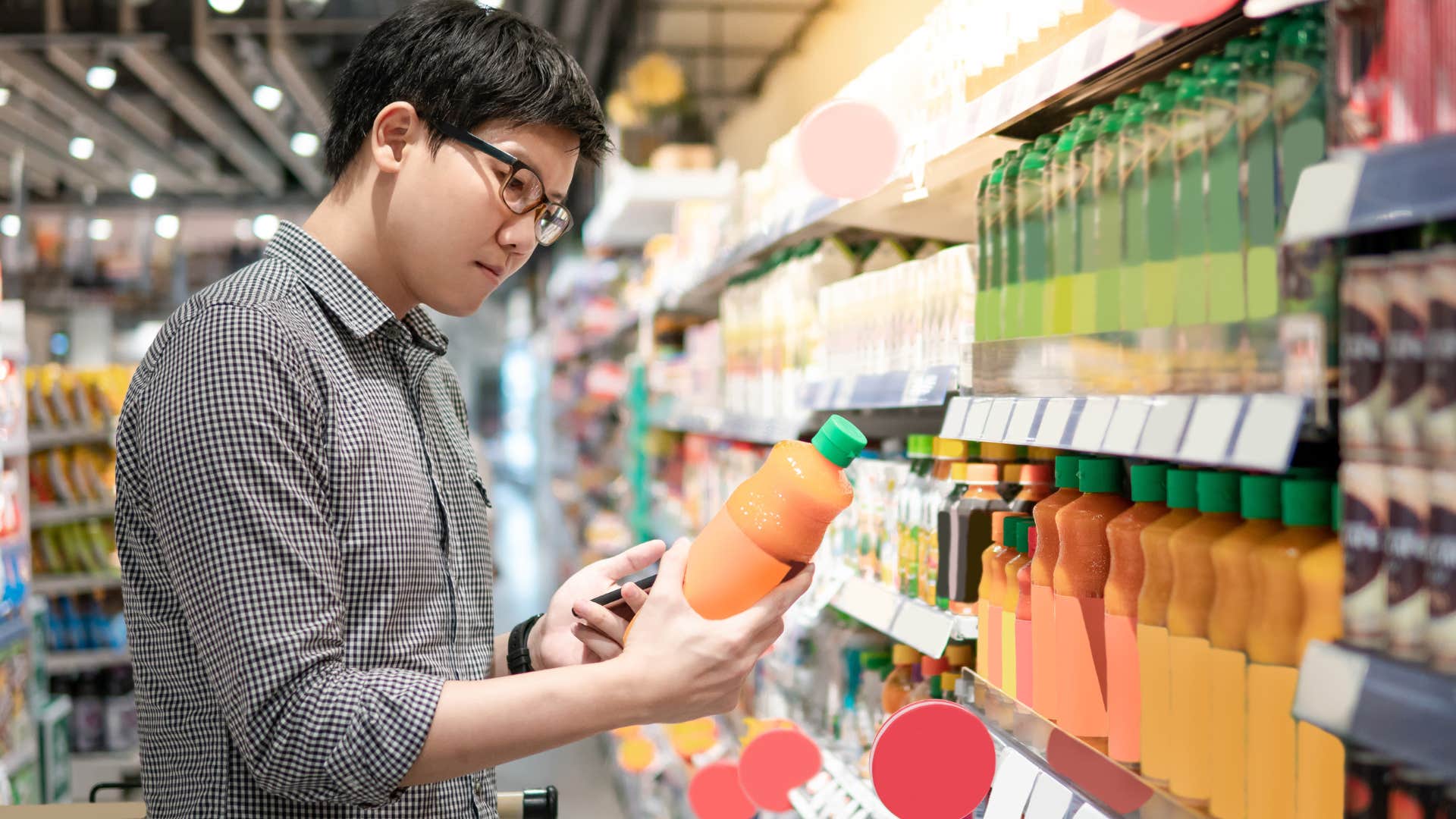 Zephry_p | Shutterstock
Zephry_p | Shutterstock
According to a survey from Consumer Reports, generic alternatives to name-brand groceries and items almost always cost less than their counterparts. By making the intentional switch to avoid brand-name items that are not only more expensive, but almost always the same ingredients and taste as the former, frugal people save every time they take a trip to the grocery store.
It's one of the small grocery habits that instantly reveal a person is financially smart, because it's representative of the self-discipline and willpower it takes to avoid advertisements and pressures pushing consumers to overspend in these shops.
11. They buy in bulk
 Caftor | Shutterstock
Caftor | Shutterstock
For regular purchases like toilet paper and pantry items, financially smart people always buy in bulk to save money, leverage savings, and get the best price. Rather than overspending on constant re-purchases month-to-month, they buy things when they're at their best price and have more freedom to plan these big purchases alongside other bills and financial responsibilities.
Like many of the other things frugal people do at the grocery store, buying things in bulk and leveraging savings is key to sticking to their budget and maximizing the savings they get, even in the face of rising costs and inflation.
Zayda Slabbekoorn is a staff writer with a bachelor’s degree in social relations & policy and gender studies who focuses on psychology, relationships, self-help, and human interest stories.

